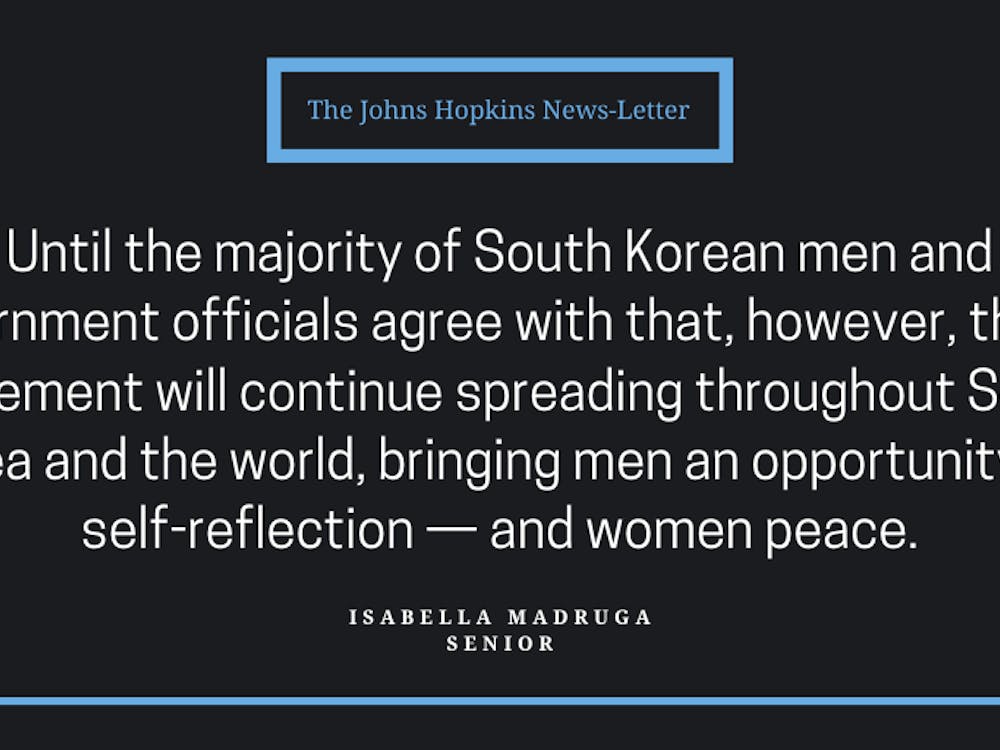One can always count on humans to be fascinated by technology. Always curious, and sometimes cautious, the public is reliably eager to see how great developments will invariably alter the context of the world in which it lives. However, this evolution is not always so benevolent and often comes at a tremendous price. The military has been at the forefront of technological innovation and revolution since the beginnings of civilization, striving to make the defense of the state as formidable as possible. The problem arises when the reciprocation of production makes the international system far less stable. Many times when this occurs, the gruesome aftermath vehemently persuades the global community to prohibit the use and dissemination of these weapons out of a mutual understanding that the world is safer without them. This begs the question, should we only consider the implications of these technologies after they have been used? I think any rational person would say no.
The weapon de jure that I’d like to discuss is the Predator drone. This unmanned aerial vehicle, originally designed for reconnaissance and observation, has in recent years seen a tremendous amount of use in the war on terror having been deployed in Afghanistan, Pakistan, Yemen, Sudan, Iraq, Libya and Somalia. The advantages of drones seem simple enough: drones provide a means of killing targets without the risk of losing any soldiers, they fly slow enough to be able to track targets for relatively long periods of time and they don’t carry the same negative connotations of sovereignty violations as putting boots on the ground. There are also obvious downsides. Drones arguably create as many terrorists as they kill and their users have high rates of post-traumatic stress disorder. However, I think the international implications have been given short shrift in the debate.
Let’s be honest with ourselves. At no point in history has the possession of military technology been exclusive to one state. Even the most complicated of weapons, intercontinental ballistic missiles (ICBMs), have become easier to produce to the point that a pariah state with few resources such as North Korea may very well have a working missile within the next decade. If this is the case, we need to accept the fact that either more states will begin to use hellfire-equipped drones or that we will have to bite the bullet and undo what we have created through international treaty. The former could very well be disastrous. I do not believe that the U.S. would necessarily object to Russia using Predators in Chechnya, although it is not a stretch to assume that they’d be even less discriminate about who they kill.
The problem arises when China begins to use them on Japanese fisherman who clash with their Chinese counterparts over sea use rights near the Senkaku Islands or when country X uses a drone to destroy country Y’s pipeline due to territorial disputes. It would be hard for the U.S. to condemn these actions as extralegal or unnecessary when the benefits of our state’s drone program have not seen substantive governmental debate.
So then what’s the response? We could start providing states with surface-to-air missiles (SAMs) for protection but this will only have two effects. The first is that this will inspire the increased dissemination of SAMs, which are produced by far more states than the U.S. and are also commonly used to shoot down commercial airliners, by all states with differing political interests making any potential future strike incredibly difficult, regardless of technology. The second is that states with Predator drones will have an interest in making their weapons more strategically capable, or in other words, start an arms race.
In the end, it seems that a treaty is the best way to go. There is no reason why there would be an assumption that this strategy would not work. Following the brutal use of chlorine gas during World War I, the international community signed the Geneva Protocol in 1928, prohibiting its use. What’s so amazing about this? None of those signatories used those weapons during World War II. Following the bombings of Hiroshima and Nagasaki, the U.S. had the opportunity to do the same with nuclear weapons through the Acheson-Lilienthal Plan, which called for a universal ban on nuclear weapons and the denaturing of world uranium supplies. The U.S. was the only state to refuse this action, inspiring the Soviet Union to continue its production out of fear of being strategically outmatched. We should not repeat the mistakes of the past and close the barn door after the horse gets out. Let’s launch a preemptive strike against an arms race for once.
Jacob Grunberger is a senior Political Science major from Cresskill, N.J. He is the foreign affairs columnist for The News-Letter.
Editor’s note: This article is part of a point-counterpoint series. Read Matt Parman’s article, “Drone on: Unmanned aerial vehicles are our best military option” from October 18.















Please note All comments are eligible for publication in The News-Letter.